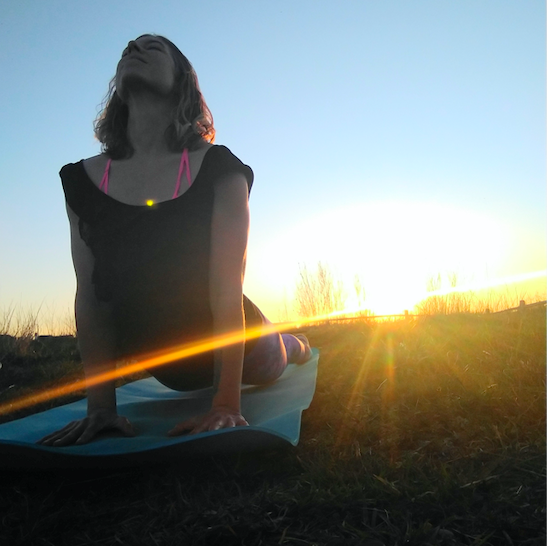No. This may have been the first word that many of us uttered.
Granted, it’s a hard word to mess up, and once it forms, it rolls off the tongue like the note of a finger pressing the key of a synthesizer. Not long after, it becomes a battle cry of the will—noooooooo!—and the assertion of a newly forming sense of personhood.
We learned the word, first, before we ever learned of boundaries.
For the majority, though, no became the symbol of our rough edges. Our unpolished, unrestrained youth. So early on, the varying influences of family, shame, social niceties, religion, formal education, and conformity came in as the sandpaper to smooth those edges.
They sandpapered our tongues.
That’s not to say we all should have been left to our own devices, our unfettered noes. That would be chaos. But we needed guidance, and what we got was censorship. This two-letter word, no, went so quickly from a joyful, triumphant utterance to a word that twists the tongue in knots—or silences us altogether.
How did this happen?
I grew up learning of the dutiful yes. Yes to my parents. Yes to Jesus. Yes to Christian service. Yes to authority, religious or otherwise. Yes to being a good girl. Yes to putting the needs of others always before myself.
Some of these yeses instilled character in me; others instilled fear. But no one taught me the sacredness of no. Not until my early 30s when I sat in a therapist’s office weekly for several years, unraveling and putting myself back together.
I think a lifetime of yes without the backbone of no had finally worn me too thin.
As is often the case with my learning, I jumped in fully clothed, fully submerged, into the deep end. No starting small for me; I went straight for the big guns.
Leaving church, and later Christianity, was my first huge defiance of the obligatory yes. For most of my life, those yeses had served me, until they started making my spirit ill.
No, I will not continue down a path that doesn’t allow space for me to become all of who I want to be.
Breaking up with my best friend of 15 years because she refused to accept who I was becoming was a heartrending no.
No, I will not continue in relationships that demand sameness and package love in blatant conditions.
These big noes, though scary-as-hell, have come more easily to me than the smaller ones. The ones that require daily practice, like no, I don’t need to push myself to exercise when I’m not feeling well or no, I don’t have to answer the phone if I’m not up for conversation or no, I don’t have to agree to spur-of-the-moment karaoke with people I don’t know even if my husband wants to.
No, I don’t need to explain my life circumstances to a stranger or in a conversation of catch-up with an old acquaintance. No, I don’t have to “be friendly” to the man who repeatedly makes me uncomfortable with borderline inappropriate compliments. No, I don’t have to apologize for being vegan at a social gathering.
These noes are sometimes the equivalent of pulling teeth. We are conditioned to view noes as negative, to have to defend our noes, blame them on someone or circumstance, offer an apology and justification. Our brains can easily rationalize these noes away, trying to convince us it’s better and kinder to play along. Not rock the boat. Be a people pleaser, a peacemaker, selfless.
We have long learned to associate no with meanness. But there is a tough sort of kindness in the no that comes from a place of not only self-love, but respect for others.
Half a year ago, I ran into someone from my past who had moved several states to the town I now call home. She was one of the last people I would have expected to see, and just the sight of her sent my insides into a spiral of panic. She is a nice person, but she is a door to my past that I had no desire to reopen.
My whole body shuddered no upon seeing her.
We exchanged numbers, at her suggestion (I couldn’t say no). Then we texted several days later. And months went by before I heard from her again, much to my relief.
The other week, a text popped up from her, asking if we could finally get together to catch up. Everything in me was mouthing no, but my brain was telling me I only had two options: say no and hurt her feelings (not to mention, be an a-hole) or say yes and swallow the discomfort, while quite possibly opening the door for further invites.
I couldn’t find the words to decriminalize no in this context. I didn’t have what my brain deemed “sufficient” reason for saying no (she’d never hurt me badly), but neither could I ignore what every other part of me was voicing loud and clear.
I don’t want to do this. I don’t need to revisit this friendship. The only reason for saying yes would be obligatory.
And yet, I didn’t owe her anything.
No too often is twisted to a yes because of a false sense of obligation, which is generally rooted in fear. It is negatively interpreted as taking something away or withholding from someone instead of offering a gift—even if that gift initially stings.
But what gift does no offer?
Well, freedom, for a start. And authenticity.
I turned to a wise friend in this situation, who helped me locate my voice. She suggested that honoring our authentic no frees not only ourselves but also the ones to whom we give it. In this freedom, each of us are offered the time and space and energy to better align ourselves with the yes that comes organically.
Saying yes to someone out of fear or obligation isn’t actually doing them a service. Who wants someone to hang out with them under this pretense? Wouldn’t most of us prefer a respectful, caring no to the false yes?
This is hard medicine.
But each time it slides down my throat, I feel that backbone forming, straightening, strengthening. My heart palpitations become a little less fluttery. My brain eventually quiets. I let go of self-cross-examination and trust my intuition. I celebrate the peace that comes with this letting go.
There is so much liberation, power, and hope to be found in yes. But maybe we only have this relationship with our yeses when they are in partnership with intuitive noes. This is the yin and the yang, is it not?
Ultimately, I texted this person back and thanked her for the invitation, telling her that I’m not available to meet up but hope she takes care. It was, I hope, a no padded in care. How she receives it, though, is not my responsibility.
As soon as I sent it, I could almost feel my heart heave a sigh of relief for listening.
And I have to believe this little no, in some ripple effect, will be of benefit to both her and I.
Meanwhile, I’m going to keep doing the work of living from my compass of truth, in all the big and small noes that come as my teachers.


 Share on bsky
Share on bsky





Read 9 comments and reply